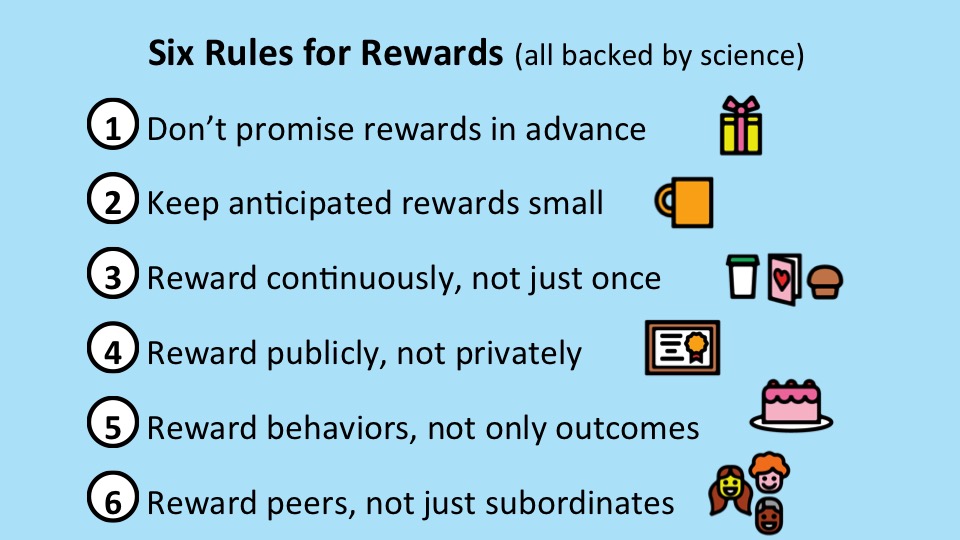by Jennifer Riggins
How do you scale your company culture right along with your business model? This is a common quandary for culture-minded startups everywhere. The best way to learn, of course, is through experimentation and shared experiences.
Typeform—the startup that’s making forms (yes, yawn, forms) interesting—is growing fast. With the corporate mission “to be a little more human,” they have to actively work to keep humanity in the tech company. One way they achieve this goal is with peer-to-peer recognition bonus distribution, with the help of the app Bonusly. Now, at Management 3.0, we use Bonusly too, but we are a fledgeling remote team of about a dozen. We were excited to learn about how colocated Typeform, and it’s 124-person growing team, use Bonusly and the Management 3.0 practice of Merit Money to increase employee motivation.
What is Merit Money? See it in action
Merit Money has many names and results in different rewards in different companies. The principle, however, is the same—peers publicly acknowledging each other with a note of recognition and perhaps some points, money, hearts, or hugs that may turn into real cash, gifts, or gift cards. These transactions are often done through an app that helps make the process transparent and keeps track of it all.
Georgina de Solà, head of operations at Typeform, said, “We started using Bonusly to recognize our colleagues’ work. It’s less about the typecoins given—we use our own currency—and more the public recognition of someone’s valuable contribution, help, effort or input.”
Employee recognition should be values-based, not outcome-focused

In Bonusly, it makes all recognition be associated with up to 12 hash-tagged values that each company chooses. At Typeform, “We started with a small set of values, that we later iterated and increased.” Georgina says they currently tag:
- #teamwork
- #leadership
- #problem-solving
- #innovation
- #customer-service
- #vision
- #help-out
- #results-focus
- #creativity
“We believe they’re aligned with our culture and own values, however, we can further iterate them whenever needed. I’m sure more values will be added, since we’re now working on refining and revisiting our own company values.”
Also Read: Startup Culture: 3 Lessons From Typeform’s Stunning New Office
Does Merit Money motivate our actions?
We talk a lot about Merit Money as a strong motivator, but that may just be a part of the overall importance of relatedness among team members.
Georgina explains that, sometimes, “because we’re busy with our day-to-day work, it’s difficult to properly appreciate a good initiative, your colleague’s help or outstanding work.” She goes onto say that because Bonusly is somehow gamified, it’s very easy and quick to share this appreciation or say thanks, while linking it to meaningful values. That’s not to say it’s necessarily a strong motivator for her. “I think it hasn’t changed the motivation at work, but it has definitely improved communication and public recognition.”
Social Media and Outreach Manager Bozena Pieniazek agrees.
“I don’t think that Merit Money affects my day-to-day motivation. However, it’s always a really nice surprise when someone recognizes me for something I did. It makes me feel like my work—whether it’s something small or big—is noticed and gets appreciated.”
Below are some of Bozena’s favorite moments of recognition:
“I also really enjoy recognizing others for something awesome that they’ve done. This is just as important—if not more—than receiving typecoins!” she said.

For Front-end Developer Nabeelah Ali, it affects her behavior in a small, but intriguing way.
She would like to think it doesn’t play a role, but admits that, “sometimes I bring in snacks or things to eat for the team knowing that it will. And I think it’s a push for me to do things out of the ordinary and go beyond expectations. It’s also nice to be recognized for work I do outside my immediate team.”
What Nabeelah does notice is your job role certainly affects how many typecoins you collect.
“For some, it’s the position they’re in. Someone serving coffees at the bar who interacts with the whole company is more likely to receive bonuses than a developer who primarily works with the two others on his team. He isn’t really recognized by the work he or she does [as] developers are not often individually recognized for the work they contribute to the product.”
Nabeelah also notices how Bonusly draws attention to how teammates amply recognize when teammates take initiative to #help-out and do things outside of their normal job descriptions. She argues, however, that this doesn’t mean people try to to take advantage of the system by turning it into a popularity contest.
“There isn’t too much visibility over who is getting how many bonuses,” Nabeelah explained. “While there is a leaderboard on Bonusly, I doubt people check it.”
She also assures us that Merit Money is something that’s simply not mentioned in performance reviews.
Bonuses should be small and fun, not your bread and butter
We all know end-of-the-year bonuses don’t work. They almost always demotivate because they are too irregular and the result is too distant from the action. It’s even worse when bonuses don’t come at all after people have budgeted for this expected extra cash. You should pay people a living wage for the work they do, no matter what the outcome.
Learn more about Rewards & Incentives
Using a practice like Merit Money encourages that you reward early and often, in small increments, and based on what other people recognize in you day-to-day. Plus, it makes sure that anyone is empowered to acknowledge and thank anyone else, avoiding the typical top-down corporate mindset.
The practice of Merit Money certainly follows Jurgen Appelo’s Six Rules for Rewards.

At Management 3.0 , we use Bonusly for giving Merit Money and for internally recognizing our colleagues. We roll the dice at the beginning of each month and if it lands on a six we calculate our bonus totals and invoice the company. For us, a payout is always a pleasant surprise that we earn based on our percentage of Bonusly points received in a given time.
At Typeform, they utilize Bonusly to manage the payout too. Typecoins can be converted into real money, Amazon and other online gift cards, or into donations to their favorite charities. But that’s not all. Georgina said Typeform throws in a twist.
Of course, to be true to the sharing and recognizing value of the tool, you can always add the given money to your sharing balance so you can keep recognizing your colleagues.
Here at Management 3.0, we don’t even have that functionality turned on (at least at the time of publishing this article) so I went ahead and contacted the folks at Bonusly to learn more about it.
Bonusly’s Customer Success Specialist Betty Ernst explained that, “across the board, we find that the Allowance Boost reward is quite popular.
Though not as popular as the gift cards, the Allowance Boost is more popular than donations. Most companies have this reward enabled and it’s really a nice way to be able to reward your teammates when everyone is having a stellar month and you run out of allowance a bit too quickly.”
Of course, burning through your “money” early on is a good problem to have and an opportunity that seems to motivate fellow employees over other bonus schemes.
“In a past company, I’ve had something like Bonusly, but the rewards were more substantial—a $30 gift voucher, with a physical card in an envelope,” Nabeelah said. “Giving and receiving happens less often with larger amounts so I prefer the micro-bonus system of Bonusly where I can give +1 Typecoin for smiles and +50 if the person has done something extraordinary to help me.”
What surprises her most is how this practice has affected her job satisfaction. “As I think about gratitude on a daily basis,” she says, “remembering the nice things that people have done to help me. Sitting down to type out a bonus is a good meditation on the little kindnesses in life.”
I think about #gratitude on a daily basis
Nabeelah (Typeform)
Also Read: A Guide to Mindfulness at Work
Nabeelah spends her typecoins on what she calls “fun stuff,” including a vacuum cleaner and art supplies, trying never to spend it on anything boring like rent. “My regular salary goes in ‘bills and savings’ but typecoins are for fun things to reward myself with.”
Bozena’s been hoarding her Typecoins since she joined Typeform the beginning of this year, but thinks she might “splurge” on some books from the world’s largest bookseller soon.
How does your team use peer-to-peer recognition? Do you use Merit Money or another route to employee acknowledgement? We’d love to hear about it!
Learn about other teams using Merit Money:
- ‘Merit Money: A Crazy Idea That Works’ at Fonte Medicina Diagnóstica
- ‘A retrospective on how Management 3.0 uses Merit Money’
- Video: ‘How to Use Agile Practices for a Leaderless Team’ at JustDigital
- ’15 Tips to Make Every Day Employee Appreciation Day’ on Bonusly Peer-to-Peer Award Program
- Github: Selleo’s open-source Merit Money supporting platform
- Selleo’s Merit Money System: ‘A 360-Degree Feedback System with Monetary Rewards’
- Video: ‘Compensation based on common sense’ Jurgen Appelo at STOOS

